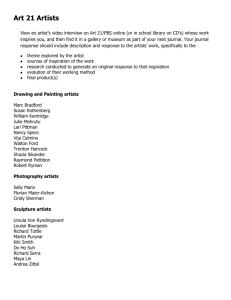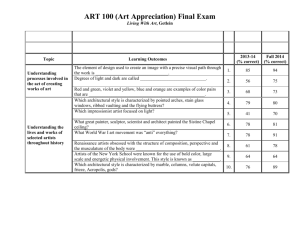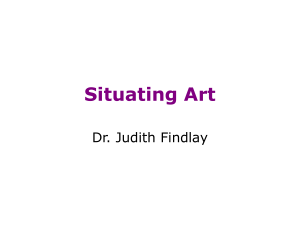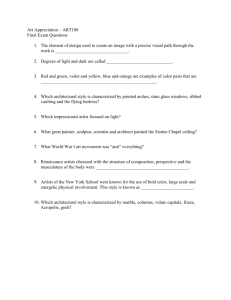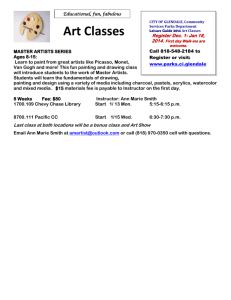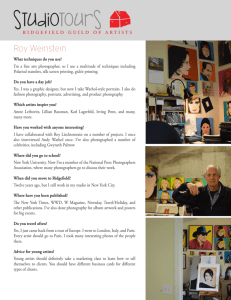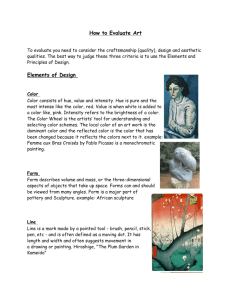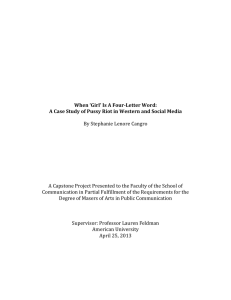Artistic freedom an indicator of a free society THROW: Some artists
advertisement
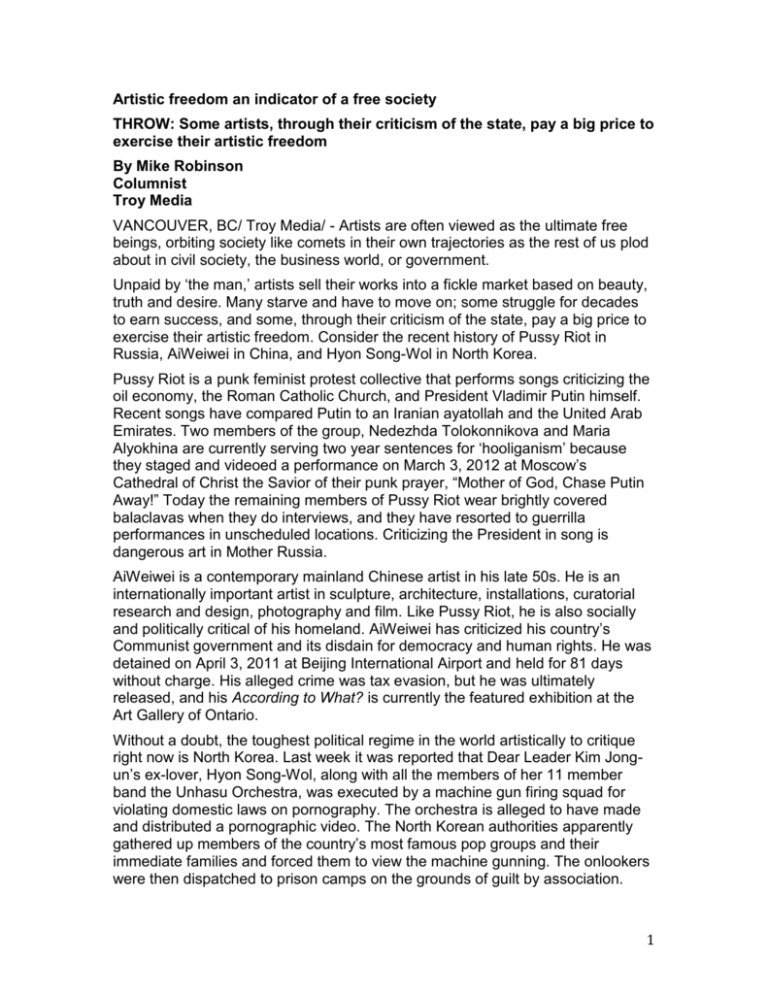
Artistic freedom an indicator of a free society THROW: Some artists, through their criticism of the state, pay a big price to exercise their artistic freedom By Mike Robinson Columnist Troy Media VANCOUVER, BC/ Troy Media/ - Artists are often viewed as the ultimate free beings, orbiting society like comets in their own trajectories as the rest of us plod about in civil society, the business world, or government. Unpaid by ‘the man,’ artists sell their works into a fickle market based on beauty, truth and desire. Many starve and have to move on; some struggle for decades to earn success, and some, through their criticism of the state, pay a big price to exercise their artistic freedom. Consider the recent history of Pussy Riot in Russia, AiWeiwei in China, and Hyon Song-Wol in North Korea. Pussy Riot is a punk feminist protest collective that performs songs criticizing the oil economy, the Roman Catholic Church, and President Vladimir Putin himself. Recent songs have compared Putin to an Iranian ayatollah and the United Arab Emirates. Two members of the group, Nedezhda Tolokonnikova and Maria Alyokhina are currently serving two year sentences for ‘hooliganism’ because they staged and videoed a performance on March 3, 2012 at Moscow’s Cathedral of Christ the Savior of their punk prayer, “Mother of God, Chase Putin Away!” Today the remaining members of Pussy Riot wear brightly covered balaclavas when they do interviews, and they have resorted to guerrilla performances in unscheduled locations. Criticizing the President in song is dangerous art in Mother Russia. AiWeiwei is a contemporary mainland Chinese artist in his late 50s. He is an internationally important artist in sculpture, architecture, installations, curatorial research and design, photography and film. Like Pussy Riot, he is also socially and politically critical of his homeland. AiWeiwei has criticized his country’s Communist government and its disdain for democracy and human rights. He was detained on April 3, 2011 at Beijing International Airport and held for 81 days without charge. His alleged crime was tax evasion, but he was ultimately released, and his According to What? is currently the featured exhibition at the Art Gallery of Ontario. Without a doubt, the toughest political regime in the world artistically to critique right now is North Korea. Last week it was reported that Dear Leader Kim Jongun’s ex-lover, Hyon Song-Wol, along with all the members of her 11 member band the Unhasu Orchestra, was executed by a machine gun firing squad for violating domestic laws on pornography. The orchestra is alleged to have made and distributed a pornographic video. The North Korean authorities apparently gathered up members of the country’s most famous pop groups and their immediate families and forced them to view the machine gunning. The onlookers were then dispatched to prison camps on the grounds of guilt by association. 1 Arguably. no western artists have paid anything like the price of Communist regime, or post-Communist oligarchic plutocracy regime artists, for critiquing the powers of the state. In North America we read of Miley Cyrus setting the Twitterverse and associated social media on fire because of her ‘twerking’ at the MTV Video Music Awards last month. Some media reports accused her of racism, legions of mothers were furious because of the impact of the highlysexualized performance on young children, and many just wrote the whole exercise off as trash. No official government reaction at any level occurred. One wonders what the reaction to the performance would have been (was?) in Kim Jong-un’s extended family? At a more subtly cerebral level, the socially speculative fiction (see most recently her trilogy capping novel MaddAddam) of Margaret Atwood, and the large format photography of Edward Burtynsky certainly expose Canadians and others to environmental entanglements and compromised industrial landscapes of worldclass scale, all of which emanate from unchecked corporate and government behaviour. I have personally witnessed Burtynsky photographs in the executive suites of a Calgary energy company; would Vladimir Putin hang Burtynsky’s Oil Sands series in the Kremlin? Clearly the freedom of artists to be openly critical of the state is an indicator of broader freedoms in society. Canadian academic Richard Florida has argued that high densities of creative class individuals correlate well with urban economic success. His Bohemian Index measures creative class concentrations among North American cities. A high Bohemian Index is associated with economic vibrancy and quality of life. Vancouver, Calgary, Toronto and Montreal lead the country in this respect. If there is a lesson in all of this, it is to be vigilant about government critiques of artists. To paraphrase a classic Canadian quote: “The state has no place in the studios of the nation.” Troy Media syndicated columnist Mike Robinson has lived half of his life in Alberta and half in B.C. In Calgary he worked for eight years in the oil patch, 14 in academia, and eight years as a cultural CEO. Read more Mike Robinson Receive Mike via RSS Click http://www.troymedia.com/premium-content/ to purchase a one-year contract. To download a hi-res image, click http://www.troymedia.com/photogallery/columnists-and-contributors-images/ PASSWORD: troycolumnists Contact: mike.robinson@troymedia.com 2
